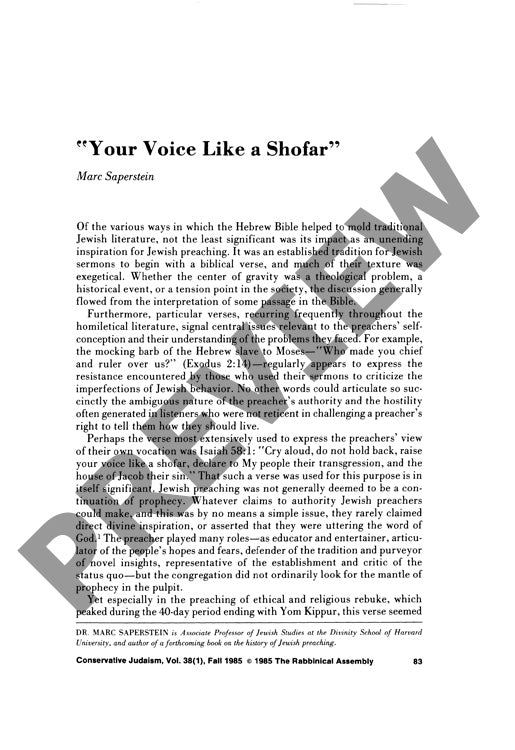Your Voice Like a Shofar
Couldn't load pickup availability
For centuries, Jewish preachers grappled with a profound challenge: how to establish their authority to criticize powerful community members while maintaining humility before both God and congregation. Their ingenious solution emerged through creative interpretation of Isaiah 58:1, "Cry aloud, do not hold back, raise your voice like a shofar." Analysis of preaching manuals, homiletical treatises, and sermon texts from fifteenth-century Spain to eighteenth-century Prague reveals how this biblical metaphor became a sophisticated framework for addressing fundamental problems of the preaching craft. Through close textual examination of sources linking the verse to contemporary preaching rather than prophetic commentary, patterns emerge showing how preachers wielded the shofar analogy to justify sermon timing during High Holy Days, develop audience-appropriate rhetorical techniques, and navigate delicate social dynamics. The metaphor provided guidance on essential qualifications, addressing tensions between humility and courage, originality and plagiarism, and the controversial matter of sermon compensation. Most significantly, it evolved to support a doctrine of preaching quietism, where preachers positioned themselves as passive divine instruments—a rhetorical strategy enabling bold social criticism while disclaiming personal responsibility. This biblical image ultimately served as a comprehensive framework through which Jewish preachers could define their role, establish authority, and address practical challenges while maintaining connection to prophetic tradition without claiming direct divine inspiration.

More Information
-
Physical Description
-
Publication Information
Published 1985
ISBN
-
Publication Credits
Marc Saperstein

